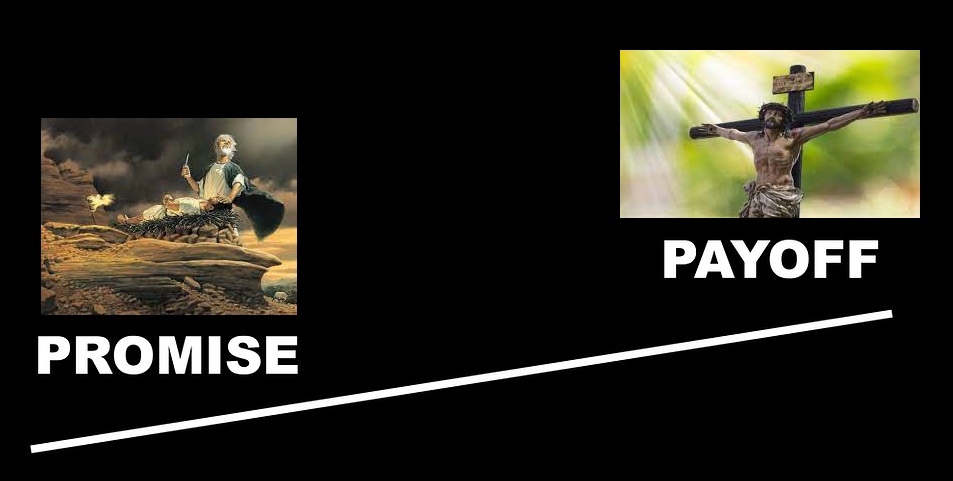Chekhov’s Son
By Anthony Casperson
8-27-22
In storytelling, there’s a trope called “Chekhov’s Gun.” It comes from a book of writing advice by Anton Chekhov. And the basic premise is that an author should never showcase small details early on in the story without having a payoff for that information later on.
He gave an example that if the author mentions in the first act of the story that a rifle rests over the fireplace, then it will be fired by the end of the story. Because if that detail of a gun had absolutely no purpose for the story/plot, then it should never have been mentioned in the first place. Otherwise, it’s a waste of words. And should be edited out.
I use this very trope in the novel I’m writing as well. Less than a third of the way through the book, the eyes of a person with precognition flash a series of colors: blood red, verdant green, bright white, and black as night. What they see isn’t explained because the protagonist barely catches the flashes as he’s walking away from the precog’s location. In the moment, the sequence and various colors make no sense. And seem to be a throwaway detail.
But, there’s a payoff for it just past the halfway mark of the story. And also another—less obvious—one even later on in the story.
For those going through the tale for the first time, these details might be missed or considered nothing more than interesting information. However, for those who know the payoff—like the author themselves when they write the story—such details stand as important and meaningful.
Earlier this week, I was reading in the bible and came to a passage that made me laugh because it seems that even in the creation of the story of our real world, God himself uses this literary trope.
Many who know of the event of Abraham’s testing by God, in Genesis 22, also understand that it points to the event of Jesus’ sacrifice where God the Father offers the Second Person of the Trinity—whose been enfleshed in humanity—on the cross. We can see the parallel pretty easily. Father to offer son in sacrifice for both.
And usually, I’d just call this a “type.” Something in the past that parallels a later event/person in history. But there’s a detail in the Genesis passage that makes me want to call this Chekhov’s Son.
Three times in Genesis 22 (in verses 2, 12, and 16), God speaks of Isaac as Abraham’s “only son.” In Hebrew writings, when something’s repeated, it’s important. But if it’s stated three times in quick succession, that’s like a big ol’ neon sign flashing its bright color at the words.
And the importance flares brighter when we remember that Isaac isn’t actually Abraham’s only son. Ishmael was born to Abraham through Sarah’s handmaid, Hagar. So, there’s gotta be something to the detail of “your only son.”
In the New Testament, when Jesus explains the gospel to Nicodemus (John 3), Jesus calls himself God’s “only begotten Son.” The Greek word for “only begotten” there is one that doesn’t really have a true parallel in English. Even the idea of “firstborn” doesn’t do it the proper justice.
The word has the idea of “unique/special.” It’s the child who will receive the greater inheritance—whether or not they’re the first in birth order. Importance is placed on this child even over any other children.
And so, back in Genesis 22, this phrasing in the Hebrew of “only son” likely carries the same idea as that of “only begotten” in the Greek of John 3. Isaac was the promised child to Abraham. The one through whom God would bless that nations. Thus, in this case, Isaac is Abraham’s unique/special son.
But is there more to this detail?
It seems to me that since all three verses in Genesis 22 which mention Abraham’s “only son” come from the voice of God, he’s placing the detail of a sacrificed “only son” early on in order to have the later payoff when he sacrifices his “only Son” on the cross.
The event in Genesis gives us a sense of God’s heart in the moment of the cross. It helps us understand the love of God through that moment in history. When the “only Son” is actually sacrificed, the beauty of God’s story of his creation comes to full display.
We feel the gut-retching impact of a Son (Jesus) willingly submitting to death on the cross because we saw a son (Isaac) willingly lie down on an altar. We sense the heartache of a Father (God) who has to pour out wrath on his Son because we witnessed a father (Abraham) raise a slaying dagger with trembling hands. We relish the joy of a Son’s (Jesus’) resurrection because we experienced a son’s (Isaac’s) return from what was to be certain death.
When he calls Isaac Abraham’s “only son,” God has given the detail of a son’s importance so that when the true story of our world reached a later act of history, we could see the Son in his full glory.
Pay attention to the details. The payoffs in God’s story are amazing.




